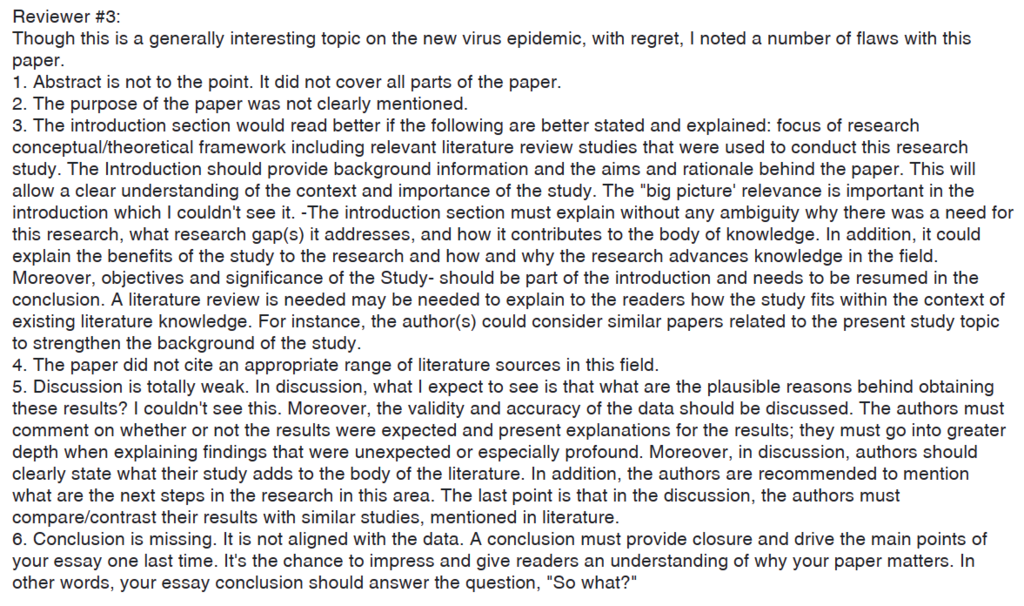Today, I would like to talk about something that happens sometimes in academic journals, which is fake reviews. While many reviewers spend time to write reviews that provide a fair evaluation of papers, some reviewers have a very unethical behavior and submit fake reviews.
This recently happened for a paper that I submitted to journal. I will not say the name of the journal, but mention that it is a Q1 journal (a top 25% journal) of Elsevier, that is quite highly ranked.
We submitted a paper that was rejected and received two reviews. The first review contained somewhat minor criticisms that I can accept. But the second review is long but only contain some very general criticisms that do not mention anything related to our paper. Upon reading that latter review a few times, I thought that is very strange because that review sounds so generic. Here is the review:

As you can see, this review is very generic. It could be applied to almost any papers. Besides the review contains some unusual choices of words such as in the point (6), where the reviewer calls our paper “an essay”.
Thus, I searched on Google, and found that this exact review appears on a website (https://www.qeios.com/read/LUCUU6) for another paper:


Upon seeing this, it is clear that the reviewer submitted a fake review. Thus, I sent an email to the editor to complain about that fake review, and hopefully, this will be taken into account and that reviewer will be punished.
This is a very unethical behavior. And it leads to the question: Why a reviewer would do this? It is likely because the reviewer wants to review more papers and do this as quickly as possible, as the number of reviews is displayed on some websites such as Publons. However, this shows that the reviewer is selfish as he does not care about the authors who receive such fake reviews and the consequences of these fake reviews, such as the paper being rejected after waiting several months. Hopefully, the editor will punish that reviewer.
This was a blog post to talk about this issue, which probably happens more often than we think. I think I have seen this at least another time in the last few years. Besides, there are many other unethical behaviors that can be observed in academic journals such as reviewers that ask authors to cite many of their papers to boost their citations. I saw this several times and every time I have reported this situation to the editor.
Hope that this blost post has been interesting. If you want to share your story, please post in the comments below.
—
Philippe Fournier-Viger is a distinguished professor working in China and founder of the SPMF open source data mining software.




